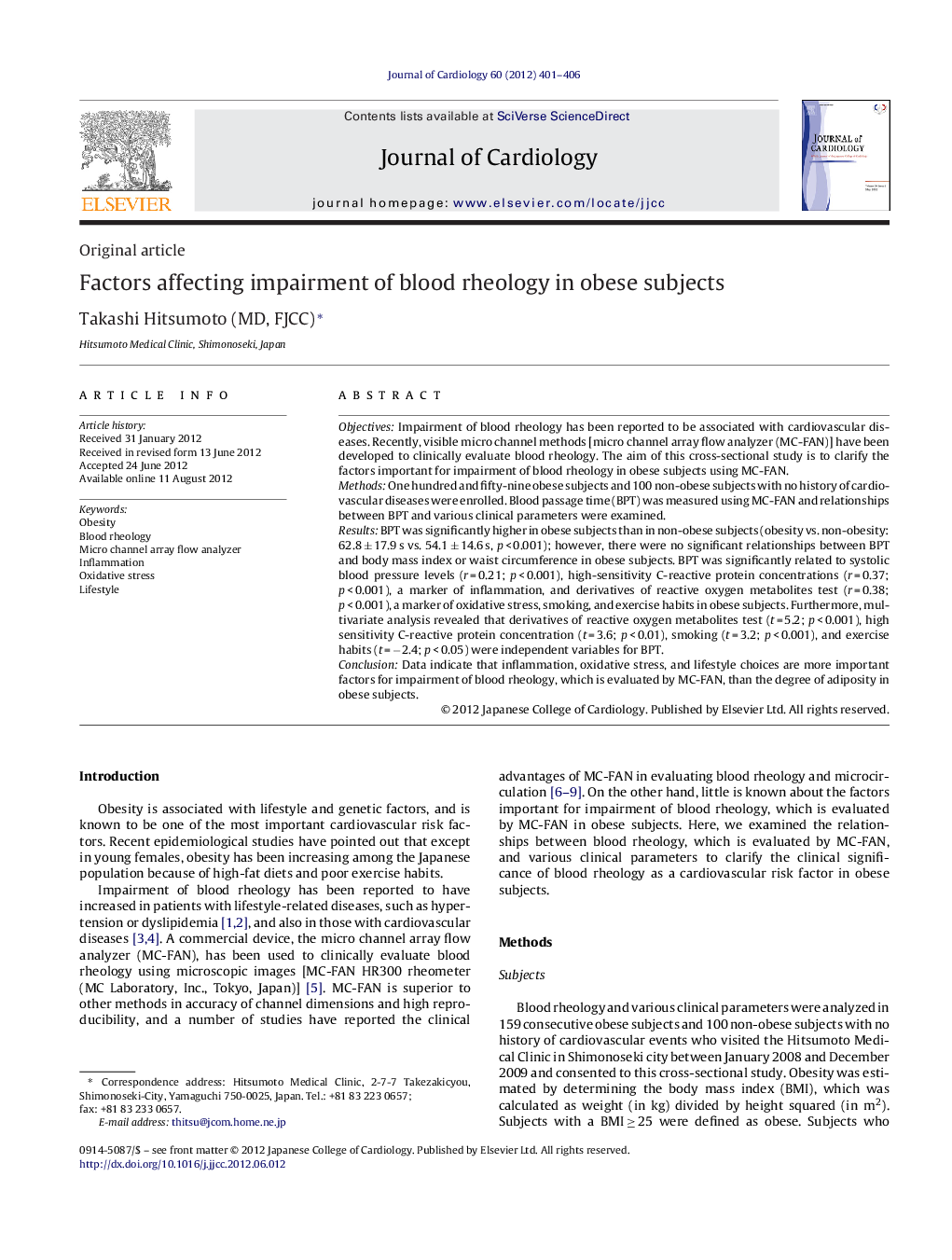| Article ID | Journal | Published Year | Pages | File Type |
|---|---|---|---|---|
| 2963191 | Journal of Cardiology | 2012 | 6 Pages |
ObjectivesImpairment of blood rheology has been reported to be associated with cardiovascular diseases. Recently, visible micro channel methods [micro channel array flow analyzer (MC-FAN)] have been developed to clinically evaluate blood rheology. The aim of this cross-sectional study is to clarify the factors important for impairment of blood rheology in obese subjects using MC-FAN.MethodsOne hundred and fifty-nine obese subjects and 100 non-obese subjects with no history of cardiovascular diseases were enrolled. Blood passage time (BPT) was measured using MC-FAN and relationships between BPT and various clinical parameters were examined.ResultsBPT was significantly higher in obese subjects than in non-obese subjects (obesity vs. non-obesity: 62.8 ± 17.9 s vs. 54.1 ± 14.6 s, p < 0.001); however, there were no significant relationships between BPT and body mass index or waist circumference in obese subjects. BPT was significantly related to systolic blood pressure levels (r = 0.21; p < 0.001), high-sensitivity C-reactive protein concentrations (r = 0.37; p < 0.001), a marker of inflammation, and derivatives of reactive oxygen metabolites test (r = 0.38; p < 0.001), a marker of oxidative stress, smoking, and exercise habits in obese subjects. Furthermore, multivariate analysis revealed that derivatives of reactive oxygen metabolites test (t = 5.2; p < 0.001), high sensitivity C-reactive protein concentration (t = 3.6; p < 0.01), smoking (t = 3.2; p < 0.001), and exercise habits (t = −2.4; p < 0.05) were independent variables for BPT.ConclusionData indicate that inflammation, oxidative stress, and lifestyle choices are more important factors for impairment of blood rheology, which is evaluated by MC-FAN, than the degree of adiposity in obese subjects.
